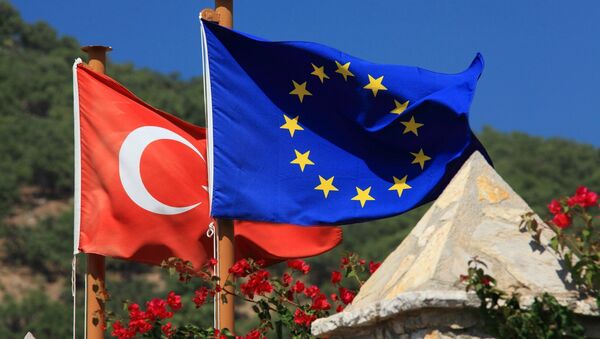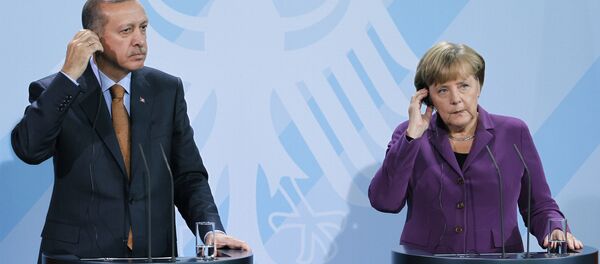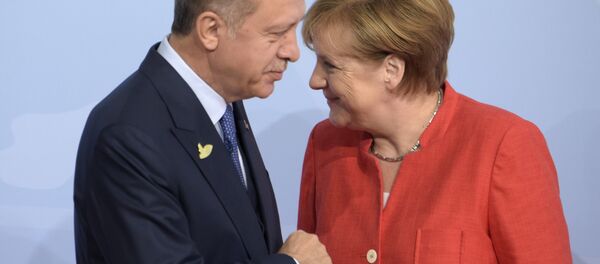Sputnik discussed this with Dr. Kerim Has, a professor at Moscow State University specializing in Turkish politics.
Sputnik: What do you make of President Erdogan's visit to Germany for the first time in seven years? What are the prerequisites for making it happen?
Turkey's foreign debt now is over $480 billion, which is three times more than its total exports and most of these debts are borrowed from European banks and companies and in this regard, its different from US-Turkish relations and the possible collapse of the Turkish economy will obviously have a spill-off effect on some European countries.
READ MORE: 'US Did Not Keep Its Promises': Erdogan Blasts Washington Over Manbij Roadmap
Sputnik: Germany has previously been very cautious about mending ties with Turkey — do you think this is just the financial issues that makes Berlin so welcoming to Erdogan or is it also the fact that, for instance, both Turkey and Germany are interested in maintaining the JCPOA and are going to take measures together to keep Iran interested in upkeeping that nuclear accord?
Dr Kerim Has: Of course other than the economic situation the current issues, the military and also, as you said, the Iranian issue, are on the agenda, of course, but I think on the Iranian issue I think Turkish side doesn't have any leverage on keeping the relations with EU on a different side.
I mean the Iranian issue probably will be always followed by the Turkish political leadership on another agenda in relations with the United States, but as you said, the migration crisis, which peaked following the aggravation of the situation in the Middle East, became a pivotal point in relations between Turkey and Germany in the last years.
And the immigration agreement signed with the EU in March 2016 is still in force and the German government wants to keep the deal alive in the following period and before the agreement was signed more than 7,000 immigrants were arriving in Greece from Turkey on a daily basis.
But after March 2016, after the signing of the agreement, this number dropped to just 70, and the Idlib issue in this sense is quite critical for the German government, and a new possible refugee flow into Europe would come even in the short-run with the recent agreement in Sochi between President Erdogan and President Putin.
READ MORE: Turkey to Host Drills in Mediterranean With US Participation (PHOTOS)
So today the principal concentration of migrants and more than 4 million people are in Turkey, which quite suits the European Union perfectly, so other than the Iranian issue I think the migration crisis is much more important for Germany and for the European Union.
The views and opinions expressed by the expert speaker do not necessarily reflect those of Sputnik.




